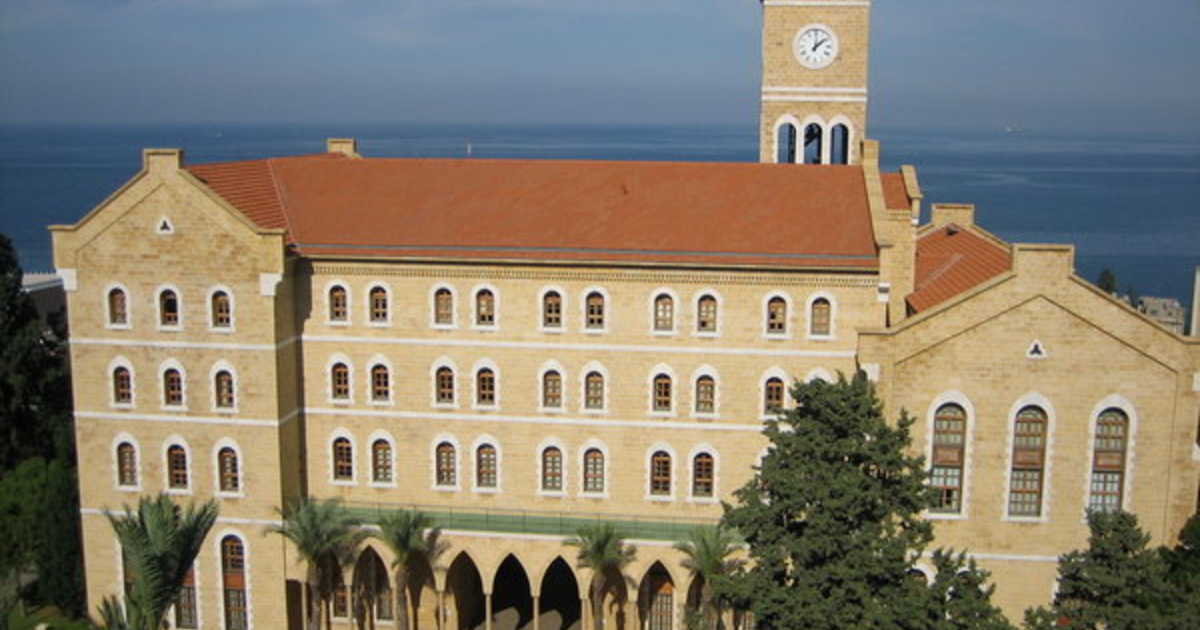The American University of Beirut (AUB) participated recently among 2,600 applications from 119 countries in the worldwide Google’s AI Impact Challenge, scoring a $1 million award to launch a project that will use artificial intelligence technology.
Accordingly, Vice President of Google and President of Google.org Jacqueline Fuller issued a statement announcing that The American University of Beirut (AUB) is one of the 20 winning organizations from around the world.
“We received thousands of applications to the Google AI Impact Challenge and are excited that the American University of Beirut was selected to receive funding and expertise from Google.”
Explaining the value of Artificial Intelligence, Mrs. Fuller stated, “AI is at a nascent stage when it comes to the value it can have for the social impact sector, and we look forward to seeing the outcomes of this work and considering where there is potential for us to do even more.”
The winning program will share a total of $25 million in funds to all the winners from Google.org, as well as credit and consulting from Google Cloud, and coaching by experts of Google’s AI as a grantee of the Google AI Impact Challenge.
The AUB winning team will receive the $1 million fund to launch its Water Preservation Project that uses artificial intelligence technology to develop a particular tool for the farmers in the Middle East and Africa to irrigate their fields at optimum times in order to save water.
It is interesting to know that the AUB project plans to use automated learning models to determine how computers handle multi-spectral images and thermal images from satellites, local weather data, and farmer data.
That would estimate the amount of water needed to irrigate crops in specific periods, as well as the actual time on a field-wide scale of the agricultural sector.
From that stage, the data of the quantity of water required for irrigation and the proposed timing will be sent to the local farmers through an application on the cell phone, or directly to a smart mechanical unit that controls the irrigation system.
The proposed technology is expected to cause a revolution in the use of irrigation techniques. It will facilitate real-time water-use expectations for farmers, allowing them to make accurate decisions on irrigation and water conservation. This technology will also make smart irrigation more accessible to small farmers in Lebanon and other arid and semi-arid regions of the world.
The AUB winning team includes 4 professors from different faculties:
- Professor Fatima Abu Salem (Computer Science, Faculty of Arts and Sciences ): the leader of the AI and ML component of the project.
- Professor Hadi Jaafar (Agriculture, Faculty of Agricultural and Food Sciences): the leader of the project overall as well as the remote sensing and smart irrigation component.
- Professor Samer Kharroubi (Nutrition, Faculty of Agricultural and Food Sciences): the leader of the statistical modeling and analysis component.
- Professor Mazen Saghir (Electrical and Computer Engineering, Maroun Semaan Faculty of Engineering and Architecture): the leader of the embedded systems and Internet of Things component.
Along with the 19 other winning organizations, three of the AUB team have now traveled to San Francisco to dive into the execution with Google AI experts and project managers, as well as the startup specialists from Google’s Launchpad Accelerator.
During the Launchpad phase, running from May to November, each of the 20 grantees will develop their own OKRs— objectives and key results —and set timelines for project completion.
Each organization will be paired with a Google expert for regular coaching sessions, and will also have access to other Google resources and expert mentorship.
The Google AI Impact Challenge was launched by Google.org, a division of Google and is considered an open call to nonprofits, social enterprises, and research institutions around the world to submit their AI ideas to help address social and environmental challenges.





